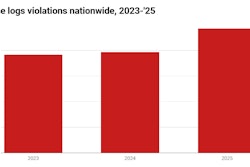The Federal Motor Carrier Safety Administration appears likely to issue an hours-of-service final rule by its Oct. 28 deadline, but has postponed its timeline for issuing rulemaking for Carrier Safety Fitness Determination.
The FMCSA sent a HOS final rule to Transportation Secretary Ray LaHood Aug. 11, just two days past target date. After LaHood’s office completes consideration, the Office of Management and Budget will review the rule before publication.
A federal court originally set the Federal Register publication deadline for July 26, but later agreed to extend that deadline until Oct. 28.
The current hours-of-service rules, which have been in effect since January 2004, made four primary changes to the regulations then in place: increasing the daily driving limit from 10 hours to 11 hours; increasing the required minimum daily rest from 8 hours to 10 hours; decreasing the number of hours on duty after which a driver may not operate a commercial motor vehicle from 15 hours to 14 hours; and allowing a driver to “reset” the weekly 60 or 70-hour on duty limits with 34 consecutive hours off duty.
Under the current proposal, FMCSA is considering whether to reduce the daily driving limit from 11 hours to 10 hours and has proposed to limit the 34-hour restart provision by requiring that it include two periods from midnight to 6 a.m. and limiting its use to once per week.

In a letter to Cass Sunstein, administrator of the Office of Information and Regulatory Affairs at the Office of Management and Budget, the American Trucking Associations earlier this month urged the Obama administration to live up to its promise to relieve the burden of unnecessary regulations as it considers changes to the hours-of-service rules.
ATA said FMCSA’s proposed rule resulted from a lawsuit and political pressure from union and safety advocacy groups and would enact drastic changes to driver’s lifestyles and carrier operations without providing any safety benefit. “DOT described its proposal as a means to further improve trucking’s highway safety record,” ATA wrote. “Yet, FMCSA’s own regulatory impact analysis showed that the proposal’s costs outweigh any potential crash reduction benefits.”










